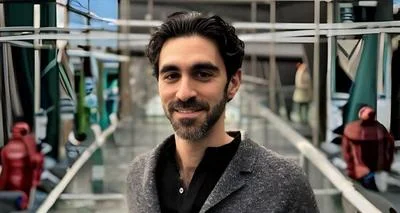Congressman David Price (D-NC), Chair of the Transportation, Housing and Urban Development, and Related Agencies Appropriations Subcommittee, delivered the following remarks at the Subcommittee's hearing on the Fiscal Year 2021 budget request for the Department of Transportation:
The hearing will come to order. I’m pleased to kick off our subcommittee’s hearing season by examining the Fiscal Year (FY) 2021 budget request for the Department of Transportation. Secretary Chao, welcome back and thank you for joining us.
Infrastructure serves as the foundation for our economy and quality of life. It facilitates the flow of goods and services, connects people to employment and educational opportunities, and plays a significant role in our nation’s overall welfare.
There’s no question our country requires a massive infusion of investment to repair deficient bridges, restore transit systems to a state of good repair, improve our ports, and build new runways. We must also make forward-looking investments in new service across all modes-including projects that expand intercity passenger rail and improve options for cyclists and pedestrians-with a renewed focus on safety, environmental sustainability, and resiliency in the face of a changing climate.
On this front, it’s especially disappointing to see the Department continue to push a deeply flawed rulemaking seeking to roll back fuel efficiency standards developed under the Obama administration. If finalized, the proposal would increase pollution and emissions resulting in higher public health expenditures and cost consumers billions at the pump. I urge DOT to reverse course.
After seemingly endless Trump administration “infrastructure weeks" that have failed to materialize into meaningful action, this subcommittee has done its part to boost investment under both Republican and Democratic House majorities. During the last three fiscal years-beginning under the chairmanship of my good friend Mario Diaz-Balart of Florida-we have appropriated nearly $16 billion above authorized levels for highway, transit, rail, maritime, and aviation infrastructure programs.
I’m proud of what this subcommittee and its members have achieved. At the same time, we know this is a “down payment" more than anything else. We need to find real “pay-fors" to balance the Highway Trust Fund and to put us on a more sustainable path forward.
As part of the budget submission, the administration has put forward an $810 billion ten-year reauthorization proposal. This is certainly an improvement over previous plans that relied on unrealistic assumptions about private investment and sought to push costs onto cash-strapped states and localities. But it still falls well short of funding levels proposed by transportation leaders in the House and Senate, and the plan lacks significant details about policy, programs, and-most importantly-how we pay for it.
It’s one thing to keep your options open, but with the expiration of the FAST Act already upon us, the President needs to get serious about negotiating with Congress and finding new revenue for the infrastructure that virtually everyone agrees is necessary for our shared prosperity.
Turning to the administration’s FY 2021 request, the Department proposes roughly $89 billion in total budgetary resources, which is $2 billion or 2.3 percent more than the FY 2020 enacted level. However, the request for discretionary budget authority is $21.9 billion, which is $2.9 billion or 12 percent below last year-a strange move for a president who has posed as a champion of infrastructure.
There are some bright spots, including another robust request for the oversubscribed TIGER/BUILD grant program. I’m also especially pleased to see funding for new transit projects in the Capital Investment Grants (CIG) pipeline.
I will note, however, that the CIG program at the end of the 2019 fiscal year had roughly $1.2 billion in unallocated and unobligated carryover funds. Combined with the FY20 funds that we just appropriated, that total rises to roughly $2 billion - essentially a full year of CIG appropriations. We know there are many worthy transit projects across the country seeking this funding. We need additional assurances-backed by action-that the department will administer this program in an expeditious manner consistent with congressional intent.
I also have serious concerns about the treatment of rail programs in the budget, which would slash investment in Amtrak’s busy Northeast Corridor, eliminate the Federal-State Partnership for State of Good Repair program, and shift the cost of long-distance service onto states. These proposals were roundly rejected on a bicameral, bipartisan basis last year.
Unfortunately, the budget also eliminates the popular Port Infrastructure Development Program and cuts NHTSA’s vehicle safety programs by nearly ten percent when we are grappling with new safety challenges posed by automated vehicles, large trucks, and distracted driving.
Finally, while the request would eliminate supplemental airport grants, it does propose $35.5 million to augment FAA aviation safety activities in the wake of the Boeing MAX disasters to hire new talent with critical skills, increase oversight, and bolster data analysis. We provided similar investments in the FY20 omnibus package to ensure our skies remain safe for the flying public. We need to learn more about this proposal and how the agency plans to use these resources.
Secretary Chao, I look forward to your testimony today and working with you to ensure DOT has the funding it needs to carry out its important mission.
Now I’d like to recognize the distinguished Ranking Member, Mr. Diaz-Balart of Florida, for his opening statement.
Source: U.S. Department of HCA







